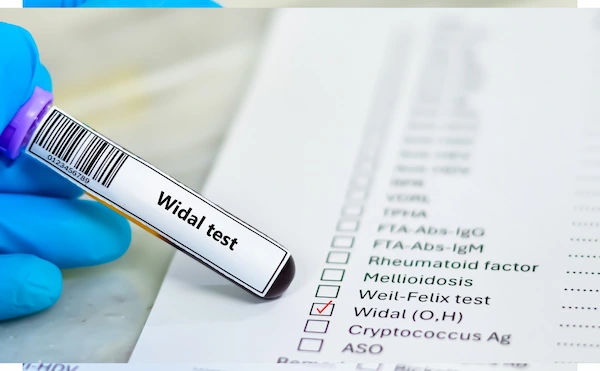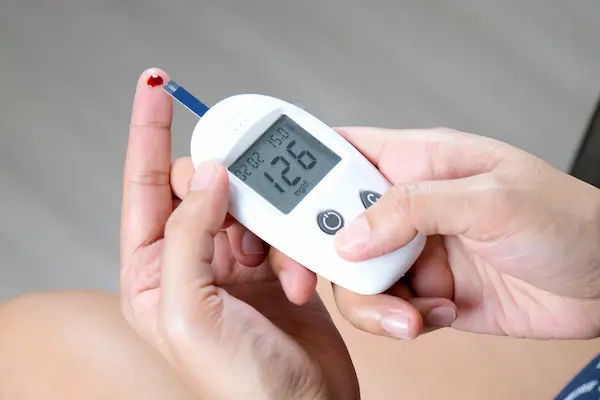- Male
- 20 Years
- 29/01/2025
I'm curious about any long-term effects of taking two Limcee tablets a day. I've been on them for about two months and noticed my immunity has improved a lot, so I'm thinking about continuing with them. Are there any concerns I should be aware of?
Answered by 1 Apollo Doctors
Potential Causes*
- Anxiety and stress: As you mentioned, anxiety can contribute to an elevated heart rate and palpitations. Career and family concerns are common stressors.
- Caffeine intake: Consuming 3-4 cups of tea per day may be contributing to your elevated heart rate. Caffeine can increase heart rate and blood pressure.
- Dehydration: Inadequate hydration can cause an increase in heart rate. Ensure you're drinking enough water throughout the day.
- Electrolyte imbalance: An imbalance of essential minerals like potassium, magnesium, or calcium can affect heart rate.
- Hypothyroidism: An underactive thyroid gland can cause an elevated heart rate. However, this is less likely given your normal echo results.
- Mitral valve prolapse: A condition where the mitral valve doesn't close properly, leading to palpitations and an elevated heart rate.
Next Steps
- Consult a cardiologist: Schedule an appointment to discuss your symptoms and determine the best course of action.
- Reduce caffeine intake: Try limiting your tea consumption to 1-2 cups per day to see if your heart rate improves.
- Stay hydrated: Drink plenty of water throughout the day to ensure proper hydration.
- Monitor your heart rate: Keep track of your heart rate and palpitations to identify any patterns or triggers.
- Consider stress management techniques: Engage in stress-reducing activities like meditation, yoga, or deep breathing exercises to help manage anxiety.
Answered 04/07/2025
0
1

More General Physician/ Internal Medicine Health Queries
View allI'm feeling really weak these last couple of days, and it's got me worried. A while back, I was taking Neurobion Forte for low hemoglobin issues. Do you think it would be okay for me to start taking it again, maybe one dose after lunch for the next 15 days? I'm just not sure if it's the right move and would love your take on it.
Can be taken If weakness persist then visit physician
Answered by 1 Apollo Doctors
I'm currently on some ayurvedic medicine, but I'm running a fever of 102. Is it okay to take paracetamol with it to help bring my fever down? I'm just a bit worried about mixing them.
Yes, you can take paracetamol for fever even after using Ayurvedic medicine, as there are no significant interactions. However, it's always good to consult your doctor to ensure there are no specific contraindications with your current Ayurvedic treatment. Stay hydrated and rest well.
Answered by 1 Apollo Doctors
I'm currently taking Cheston Cold and noticing it's working, but I'm unsure about the right dosage. Should I be taking it two or three times a day?
I'm glad to hear that your cousin has completed the treatment for the STD and the infection has cleared up. However, the persistent penile discharge, although minimal, can be uncomfortable and concerning. To address this issue, I recommend the following steps: *Diagnostic Tests* 1. *Urine Test*: A urine test can help identify any underlying bacterial infections, such as chlamydia or gonorrhea. 2. *Urethral Swab*: A urethral swab can help detect any bacterial or fungal infections that may be causing the discharge. *STD Testing Centers in Pune* Here are some reputable testing centers in Pune where your cousin can get tested: 1. *National AIDS Research Institute (NARI)*: A government-funded institute that offers free STD testing, including HIV. - Address: 73, G Block, MIDC, Bhosari, Pune - 411026 - Phone: 020-27121024 2. *Pune Municipal Corporation's (PMC) STD Clinic*: Offers free STD testing and treatment. - Address: Pune Municipal Corporation, Main Building, Shivajinagar, Pune - 411005 - Phone: 020-25501000 3. *Private Labs*: Your cousin can also visit private labs like Dr. Lal PathLabs, SRL Diagnostics, or Metropolis Healthcare. - These labs usually offer a range of STD testing options, including bacterial and fungal infections. *Pre-Test Preparation* Before visiting any testing center, it's essential to: 1. *Abstain from urination*: For at least 2-3 hours before the test to ensure accurate results. 2. *Avoid using antibiotics or antiseptics*: For at least 24 hours before the test to prevent interference with test results. *Post-Test Care* After the test, your cousin should: 1. *Follow the doctor's advice*: Based on the test results, the doctor may prescribe antibiotics or other treatments. 2. *Practice good hygiene*: To prevent the spread of infection, your cousin should maintain good genital hygiene and use condoms during sexual intercourse.
Answered by 1 Apollo Doctors
Disclaimer: Answers on Apollo 247 are not intended to replace your doctor advice. Always seek help of a professional doctor in case of an medical emergency or ailment.

.webp)
.jpg)


